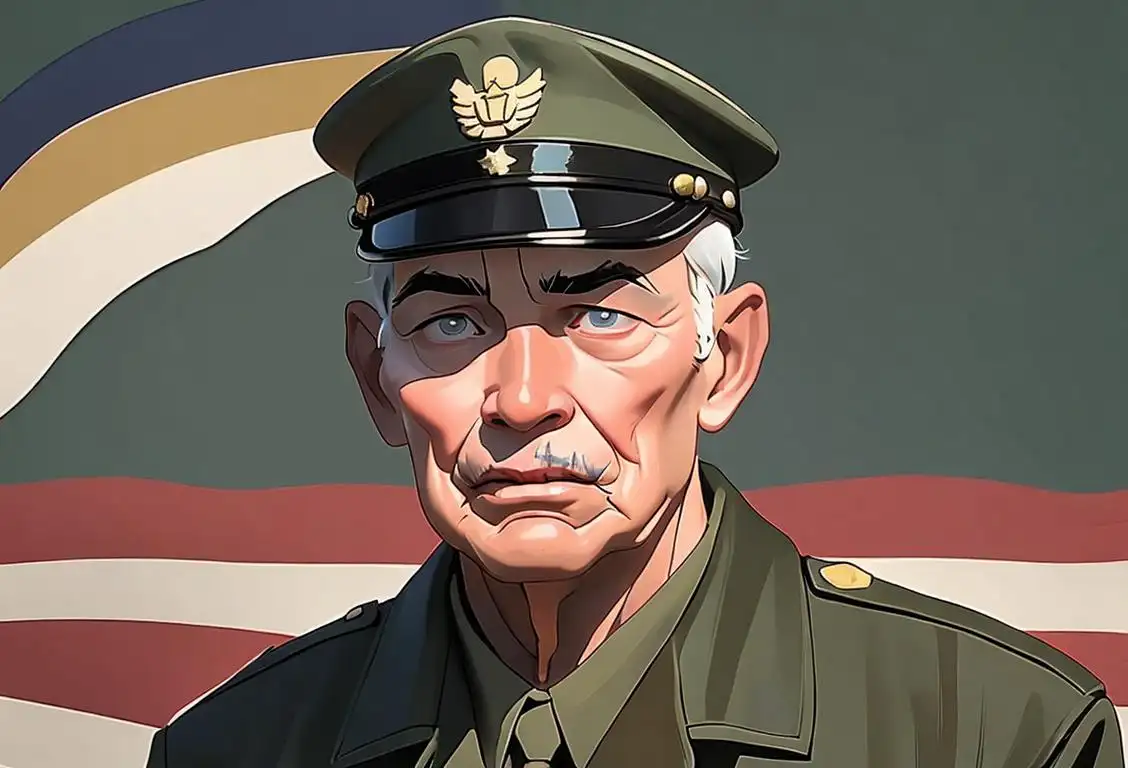National Vietnam War Vets Day

Did you know that there's a special day dedicated to honoring Vietnam War veterans? Well, now you do! National Vietnam War Veterans Day is an important observance that recognizes the sacrifices made by individuals who served during one of the most tumultuous times in American history. Let's take a trip down memory lane and learn more about this significant day.
When is Vietnam War Vets Day?
It's national vietnam war vets day on the 30th March.
The Internet History of National Vietnam War Veterans Day
On March 30, 2017, National Vietnam War Veterans Day was officially designated as a commemorative holiday in the United States. This day holds great significance as it honors both the living and deceased veterans of the Vietnam War era.
The Vietnam War was a conflict that lasted from 1955 to 1975, and it deeply impacted the lives of those who served. Many soldiers faced hardships, watched their friends fall, and carried the weight of their experiences long after the war ended. National Vietnam War Veterans Day aims to recognize these brave individuals and express gratitude for their service.
Since the advent of the internet, the awareness of National Vietnam War Veterans Day has grown steadily. People from all walks of life have taken to social media platforms, forums, and blogs to share their stories, express their appreciation, and pay tribute to those who served in the Vietnam War.
Friends and loved ones have used the internet as a platform to honor their veteran family members. They often share touching stories, photographs, and personal anecdotes to showcase the courage and resilience of those who served during the Vietnam War era.
History behind the term 'Vietnam War Vets'
1961
US sends military advisors to Vietnam
In 1961, the United States officially began sending military advisors to South Vietnam to assist the government in its fight against communist insurgents. The goal was to train the South Vietnamese military and provide support in their struggle against the Viet Cong.
1964
Gulf of Tonkin incident escalates US involvement
The Gulf of Tonkin incident in August 1964 marked a major turning point in the Vietnam War. The US claimed that its naval vessels were attacked by North Vietnamese forces, and this event led to the passage of the Gulf of Tonkin Resolution, which granted President Lyndon B. Johnson broad authority to escalate US military involvement in Vietnam.
1965
US deploys combat troops
In March 1965, the first US combat troops arrived in South Vietnam, marking a significant shift in the nature of American involvement. The deployment of ground forces signaled a growing commitment to direct military engagement in the conflict. This marked the beginning of a long and bloody war that would profoundly shape the lives of Vietnam War veterans.
1969
Vietnamization policy
In 1969, President Richard Nixon announced the policy of 'Vietnamization,' which aimed to gradually reduce American troop levels and shift the burden of combat to the South Vietnamese military. This policy reflected a growing sentiment among the American public that the war was becoming increasingly costly and unpopular.
1973
Ceasefire agreement and withdrawal of US forces
In January 1973, a ceasefire agreement was signed between the US, South Vietnam, and North Vietnam, effectively ending direct US military involvement in the war. As part of the agreement, US forces were gradually withdrawn from Vietnam. This marked a significant chapter in the history of the conflict and had a profound impact on the veterans who had served in Vietnam.
1982
Vietnam War Veterans Memorial unveiled
On November 13, 1982, the Vietnam War Veterans Memorial, also known as 'The Wall,' was unveiled in Washington, D.C. The memorial serves as a tribute to the men and women who served and sacrificed during the war. It became a powerful symbol of national reconciliation and a place of remembrance for Vietnam War veterans and their families.
Did you know?
Did you know that the Vietnam War was the first conflict to be widely televised? This allowed the public to witness the realities of war firsthand, and it played a significant role in shaping public opinion and anti-war sentiment.Tagged
awareness loved ones rememberanceFirst identified
29th March 2017Most mentioned on
30th March 2017Total mentions
14Other days
Cheese Lovers Day
Teddy Bear Day
Sibs Day
Biscuit Day
Cancer Survivors Day
Agriculture Day
Pumpkin Day
Suicide Prevention Day
Memorial Day
First Responders Day









